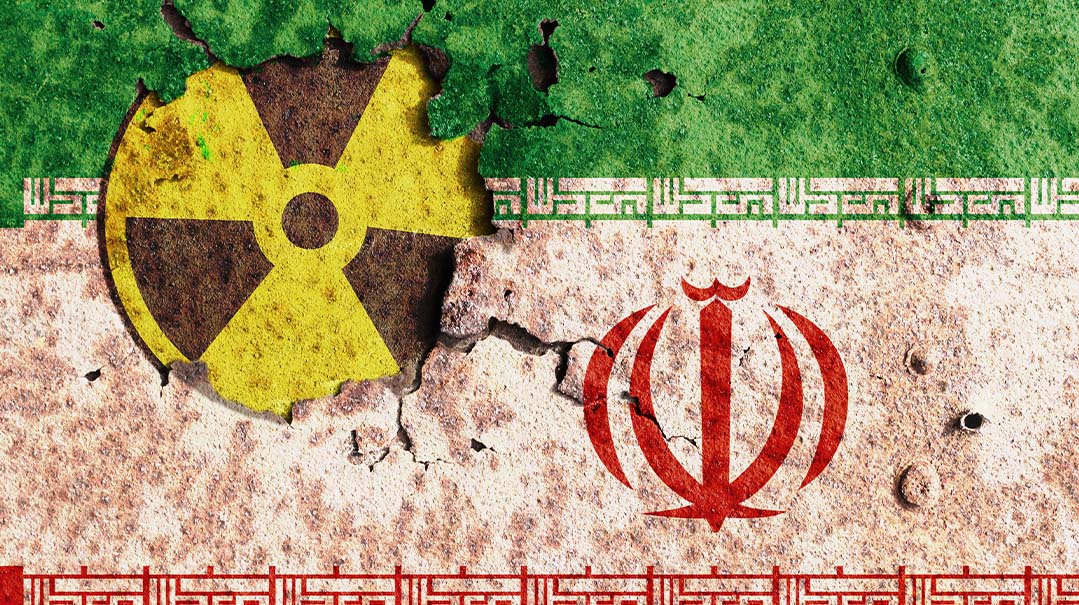A Deal at Any Price?

Biden is desperate for a deal, but will Iran oblige?

As a new round of talks was set to convene in Vienna on Tuesday, there finally seemed to be a flurry of movement toward a new nuclear deal with Iran. Significantly, however, the Iranians weren’t the ones moving.
A senior State Department official said in a briefing I attended that although talks were weeks away from concluding, Iran’s nuclear program continues advancing as we speak. So if a deal isn’t signed quickly, it may no longer be relevant — the Iranians will be so close to a bomb that no deal could ensure they stay below the nuclear threshold.
So over the weekend, the administration waived several sanctions on Iran. The Americans had started from the position that sanctions would only be lifted at the end of the negotiations, but are now explaining that lifting the sanctions is itself part of the negotiating process.
“The sanctions waived were about being able to ship out enriched uranium and spent fuel, and help for it,” said Dennis Ross, distinguished fellow at the Washington Institute. “Both could be relevant if there is a deal,” he told me. “Indeed, each would be necessary. But each could be useful for nonproliferation purposes. There is no economic payoff.”
Richard Goldberg, senior advisor at the Foundation for Defense of Democracies (FDD), argued that these are significant strategic actions “that demonstrate a doubling down on the fatal flaws of the JCPOA.”
“The Biden administration is telling Tehran it supports uranium enrichment on Iranian soil, it supports Iran having a heavy water reactor at Arak, and it supports Iran keeping an underground facility like Fordow — all of which Iran has proven can be used to extort the world at any time of its choosing, and all of which represent the fundamental fatal flaw of the 2015 nuclear deal,” he said.
“Let’s also keep in mind that these waivers provide zero restrictions on Iran’s nuclear program, contrary to what JCPOA supporters claim,” Goldberg continued. “Iran restarted enrichment at Fordow while the Trump administration had a waiver for Fordow still in place — and in three years of enjoying a waiver for Arak, it never moved forward with a redesign of the reactor to close off its future plutonium path to a bomb. That the Biden administration is willing to green-light all of these activities in the midst of an active IAEA investigation into Iran’s undeclared nuclear activities greatly undermines the agency and makes all but impossible we will ever get answers to what Iran is hiding.”
As to whether an agreement is truly near, or this is just a gesture, Goldberg was dismissive: “The administration looks desperate for any deal Iran will say yes to, so that makes the odds of an agreement highly likely.”
Michael Pregent, senior fellow at the Hudson Institute, said other adversaries of America are taking note. “The Biden team just sent the wrong message to Russia, China, and North Korea through sanctions relief for Iran,” he said. “That message: Provocations will be rewarded.
“The message back to the Biden administration from Tehran: We want all sanctions removed and a guarantee that no future American president can re-impose sanctions, or no deal,” he added. “Iran’s requests are unrealistic, but the Biden administration is doing everything it can to accommodate Iran, and more capable adversaries are taking notice.”
On Sunday this week, President Biden and Israel’s Prime Minister Naftali Bennett spoke for the first time in half a year, a conversation in which Biden accepted Bennett’s invitation to visit Israel sometime this year.
The two also discussed Iran, but it was interesting to note that the prime minister didn’t criticize the deal in his remarks, which may indicate an understanding on Jerusalem’s part that chances of an agreement are high, and it’s better to try and influence it from within than lock oneself out of the process by opposing it entirely.
For all this, if there’s anything the negotiations until now have taught us, it’s that it isn’t over till it’s over, and Washington is signaling that it won’t allow the Iranians to drag the process on forever. The coming days in Vienna will be critical.
(Originally featured in Mishpacha, Issue 898)
Oops! We could not locate your form.






